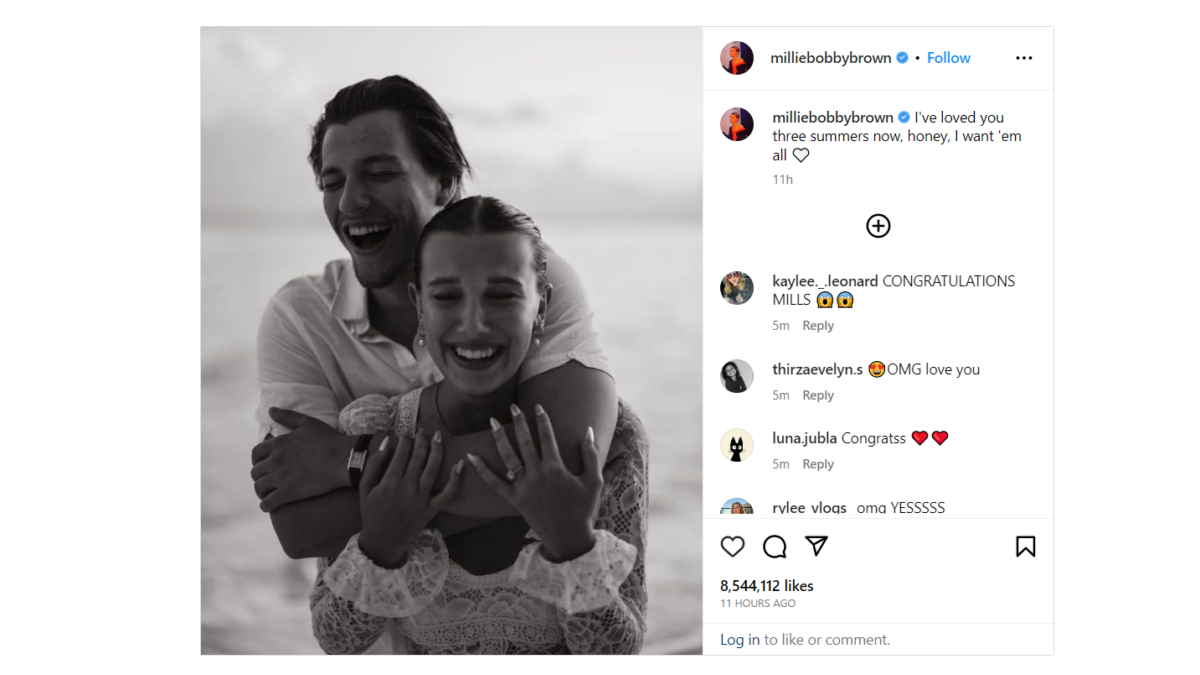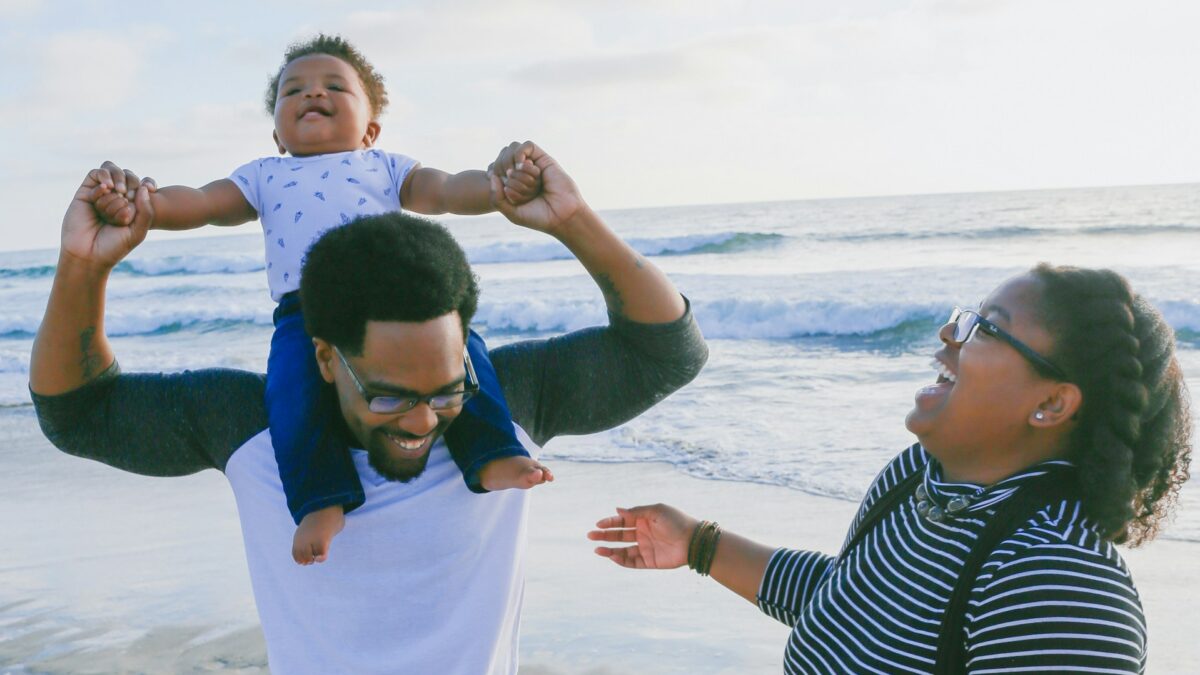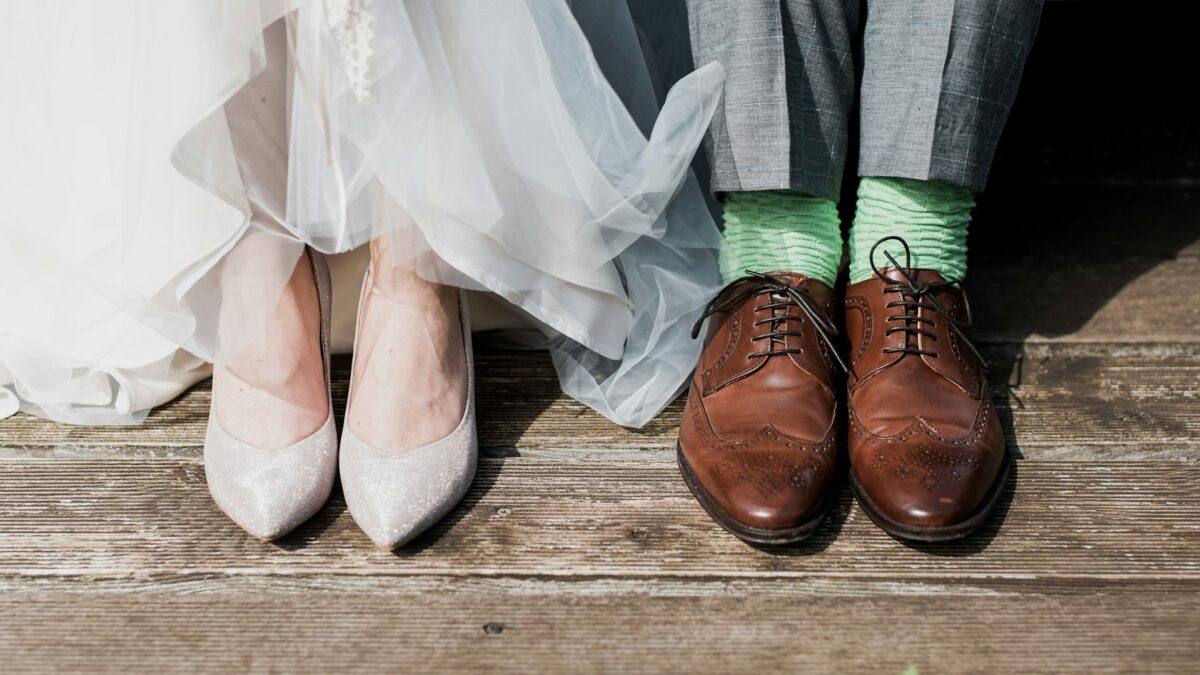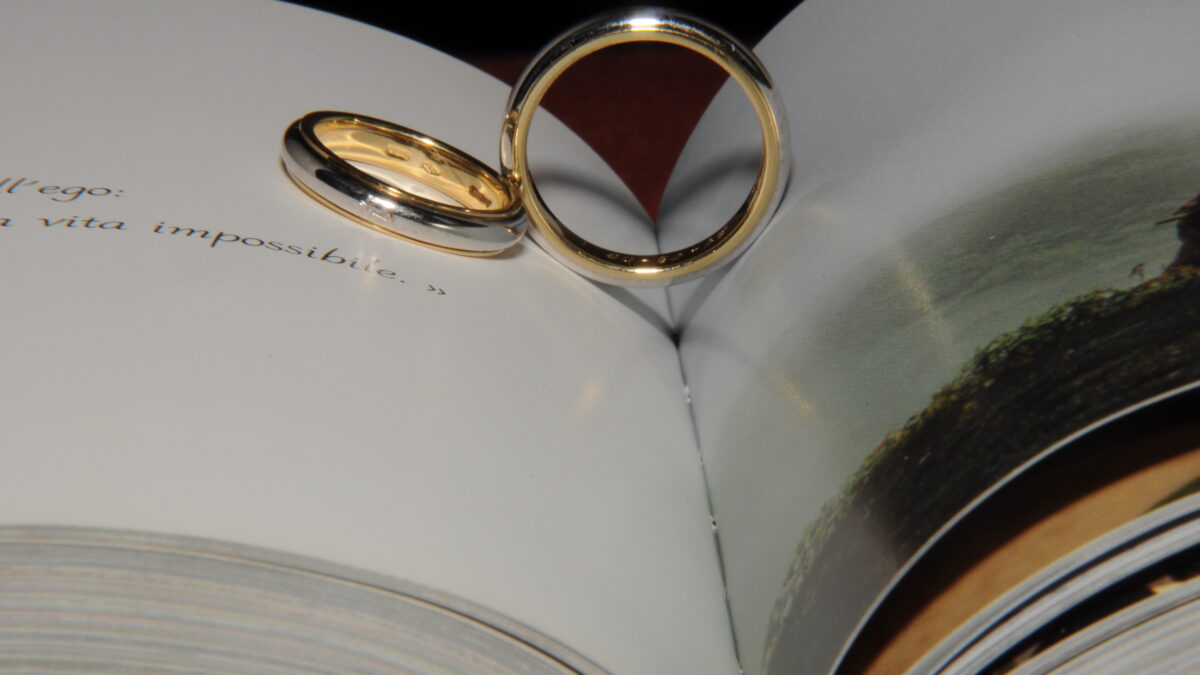After “Stranger Things” star Millie Bobby Brown posted an apparent engagement announcement Tuesday morning, a small gaggle of internet trolls rushed to condemn the 19-year-old actress as too young to begin a marriage with 20-year-old fiancé Jake Bongiovi, causing “She’s 19” to trend on Twitter. But the truth is, Brown and Bongiovi could do far worse than partake in an institution that statistically makes its participants happier, better, and more successful.
I have no way of knowing if Brown and Bongiovi are “ready” to get married. Plenty of 19-year-olds are, plenty aren’t. While one would hope age translates to more maturity, there are 19-year-olds out there with a far healthier grasp of marriage than the unhappy 40-somethings and 50-somethings populating Hollywood (and the rest of the world) who were too absorbed with “self-love” and girl-bossery to ever give matrimony a shot. For all we know, Brown is one of the former.
Entered with the right perspective, marriage matures you and enables you to grow alongside your spouse, being used for each other’s sanctification and recognizing your need for grace — rather than postponing marriage until you have everything “figured out,” only to realize you never will. It’s a weighty and holy covenant that should not be entered into lightly, but it’s also a covenant designed for imperfect, unfinished people. If you expect to be done maturing by the time you say, “I do,” your marriage won’t be a happy one.
The maturity and quality of the person you choose to marry matters, obviously, but so does his or her willingness to commit to a lifetime of choosing to love you unconditionally. That commitment makes marriage intimidating, but living and sacrificing alongside someone you love who is equally committed to you is far less scary than intentionally going through life alone for fear of narrowing your options.
More Americans than ever are choosing to put off marriage or avoid it altogether. For some, it’s because they’ve been conditioned to see marriage as an unappealing limitation on their freedom. For others, it’s something they want someday, but not until they have the adventures of self-discovery that are incessantly advertised by the media they consume.
The median age at which Americans get married for the first time now hovers around 30 for men and 28 for women, compared to 24 and 22 in 1980. Pew Research in 2019 found that nearly 4 in 10 Americans ages 25-34 were single. Women, in particular, have been sold the lie that marriage is a bad trade and that unforgiving careers and playboy lifestyles will leave them more fulfilled. Men have been encouraged to spurn the “traditionally masculine” role of husband/father/protector/provider, left instead to languish as unadjusted, overgrown children — a development that leaves even women who might want a husband to conclude that the men aren’t worth it.
All the while, our cultural oracles continue to preach that “marriage doesn’t really make sense anymore” and that we should all “Focus[] on what we can control (which is only ourselves)” because that “makes us happy.”
But instead of empowering women and perfecting men, that approach has left the sexes more confused, desperate, and unfulfilled. Some women reach the end of their childbearing years before regretting the decision to put off starting a family. Other women freeze their eggs in desperation, hoping to eventually find a mate. Too many realize too late that they’ve “wasted” their lives, as one distraught 35-year-old woman who identified herself as unmarried, childless, “broke and mostly friendless” wrote to The Cut.
“For all these years of quick changes and rash decisions, which I once rationalized as adventurous, exploratory, and living an ‘original life,’ I have nothing to show for it,” she lamented. “I used to think I was the one who had it all figured out. Adventurous life in the city! Traveling the world! Making memories! Now I feel incredibly hollow. And foolish.”
Some of the reactions to Brown’s engagement hinted at similar self-reflection on wasted time. “she’s 19 and engaged and i’m 18 and doing ‘what celebrity am i?’ quizzes when i’m supposed to be doing my assignment,” one poster wrote.

“She’s 19 and engaged. I’m 21 and haven’t been in a single relationship,” posted another.

If more young people were thinking intentionally at 19 about how to achieve the love and family they claim to eventually want, they’d have a better chance of avoiding the hopelessness that haunts so many who choose to defer it indefinitely in favor of their own self-indulgence. Ironically, as the woman writing to The Cut’s advice columnist shows, that attempt at “self-discovery” often leaves its victims with a more shattered sense of self than before.
Even more bizarre, the self-obsessed worldview that swindles people into thinking marrying young means “throwing your life away” is the same one that demands minors be encouraged to mutilate their bodies in the name of twisted self-validation. To a reasonable observer, it’s nonsensical to say that a gender-confused teenager is old enough to chop off her healthy breasts while a 19-year-old is too young to commit to the mutually beneficial covenant of marriage.
But if self-worship is your standard, this grotesque stance is perfectly consistent. Transgender surgeries glorify the idol of self-gratification — even though they are self-destructive, as every act of self-worship eventually is.
Marriage, on the other hand, demands the constant yet infinitely rewarding decision to sacrifice yourself for your spouse. It’s counter-intuitive if you want to focus on yourself. The irony is, of course, it’ll also make you better and happier.
In a 2022 Vogue interview, Brown noted how her career caused her to bypass “things the average teenager might do.”
“Obviously my teenage years were different,” she said. “There were certain things that I definitely missed out on, and then suddenly I turned 18 and I was like … how lucky am I that I missed out on those things?”
If Brown and her fiancé choose the life that a loving, committed marriage brings, they’ll also miss out on the years of disappointment that a tragic number of their marriage-avoidant peers choose to endure — and they’ll feel just as lucky about it.









